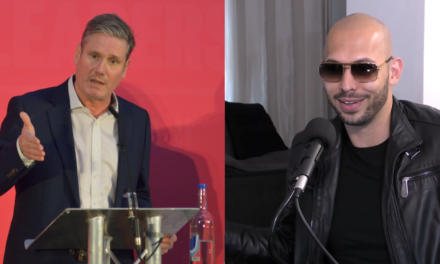The BBC has decided to distance itself from comedian and political commentator Russell Brand, believing that this bold manoeuvre will somehow help make up for the Jimmy Savile scandal that rocked the organization in the past.
The decision to cut ties with Brand, known for his provocative humor and outspoken political views, came after a marathon board meeting during which BBC executives brainstormed ways to demonstrate their commitment to higher moral standards.
“We’ve been doing some soul-searching,” said BBC spokesperson Nigel Pendleton, who sported a monocle and a top hat for the occasion. “And we’ve come to the brilliant conclusion that if we disassociate ourselves from Russell Brand, it will magically erase all those unfortunate incidents involving Jimmy Savile from public memory. It’s foolproof, really.”
The move has been met with mixed reactions. Supporters of the decision argue that distancing the BBC from Brand is a strong step toward regaining public trust. “Finally, the BBC is taking a stand for decency,” said one viewer, sipping tea and nibbling on a scone. “Russell Brand’s wild hair and even wilder ideas were tearing at the very fabric of British society.”
However, critics see this as a bizarre attempt at scapegoating one individual for the sins of the past. “It’s like trying to fix a broken teapot by rearranging the tea leaves,” said one observer, shaking their head. “It won’t change the fact that the teapot is still shattered.”
Brand himself responded to the news with his trademark wit, tweeting, “I’d like to thank the BBC for this opportunity to free up my schedule for more yoga and revolutionary poetry readings.”
The decision to distance the BBC from Brand has raised questions about the organization’s approach to addressing its historical controversies. Many are wondering whether this move is simply a distraction or a genuine effort to rebuild public trust. Only time will tell if the BBC’s strategy will prove effective or if it will join the ranks of satirical news headlines in the annals of media history.
















